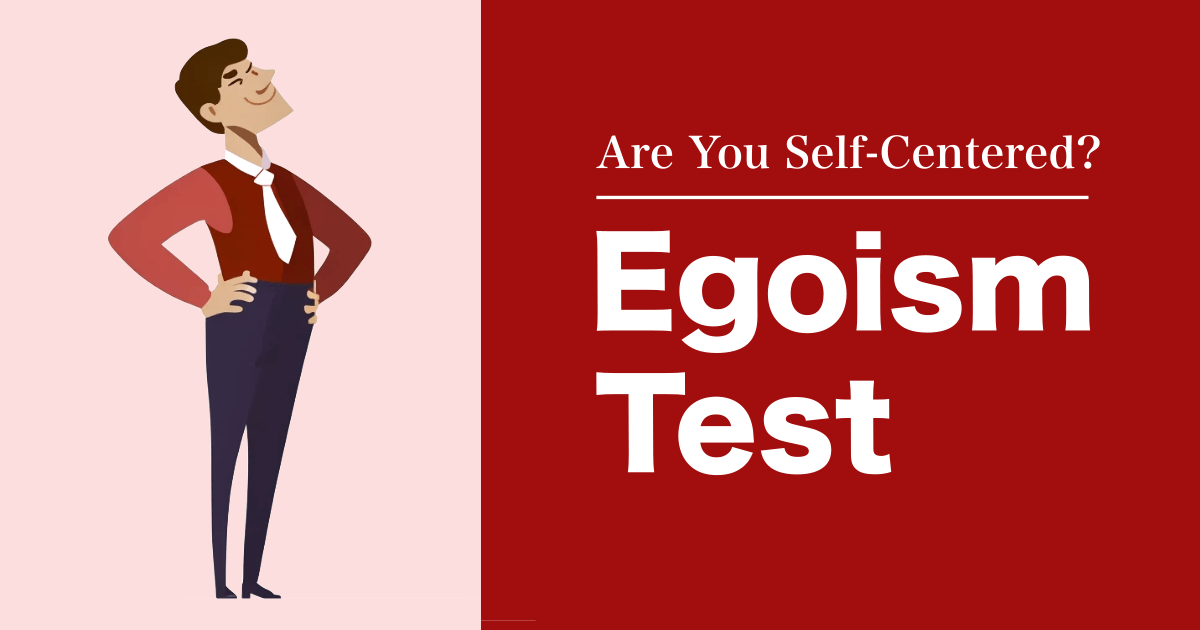
Do you think you are an egoist? This 20-question test will reveal your level of egoism. Whether you often feel self-centered or struggle to assert yourself, the Egoism Test will evaluate your ego levels.
An egoist is someone who tends to act in a self-centered way, prioritizing their own interests and happiness above those of others. In psychology, such behavior or thought patterns are often viewed as an overemphasis on the self—what we call the "ego."
Egoists focus heavily on their own desires, benefits, and satisfaction, sometimes ignoring or dismissing the needs and emotions of others.
Egoism is often discussed in relation to Freud’s theory of the ego. In Freud’s model, the ego mediates between instinctual drives and social reality, balancing impulse and control. An egoist’s behavior suggests that this balance has tilted—favoring their own impulses and self-interest.
Egoism can also be linked to narcissism. People with strong narcissistic traits tend to seek admiration and external validation, focusing excessively on their own achievements or recognition—traits that overlap with egoistic behavior.
While a certain degree of egoism may help individuals achieve success and independence, it can also create friction in relationships, leading to conflict, isolation, or dissatisfaction.
The key lies in balance: valuing yourself while also respecting others. Regulating egoistic tendencies allows for healthier, more fulfilling relationships and personal growth.
The Egoist Test is a psychological self-assessment designed to help you understand the balance between self-interest and empathy for others.
Here, “ego” doesn’t mean selfishness — it represents your ability to value your own emotions, needs, and principles.
The purpose of this test is to help you objectively see how much you tend to prioritize yourself versus how much you adapt to others in daily relationships.
Many people associate “ego” with negativity, but in reality, it’s not inherently bad.
Having a sense of ego means being able to assert your opinions, set boundaries, and say “no” when necessary — a healthy form of self-protection.
On the other hand, people who constantly put others first can experience stress, resentment, or emotional exhaustion.
In other words, ego is not the enemy — it’s a protective force that, when balanced, helps you live more authentically and confidently.
Especially by seeing “how others perceive you,” you can take immediate, practical steps toward more balanced communication.
The Egoist Test helps you explore how much you prioritize yourself versus how much you adapt to others.
Having an ego isn’t a flaw — it’s part of being human.
What matters is finding that “sweet spot” where you can value both yourself and the people around you.
Knowing your true motivations and limits is the first step to easier relationships and a more authentic, fulfilling life.